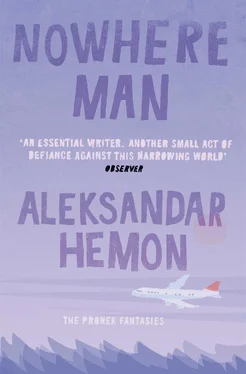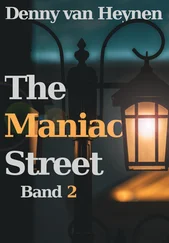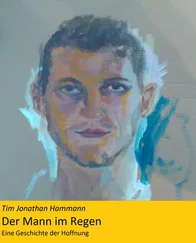The days after Babi Yar were days of torment. I spent a lot of time with people who ultimately made me feel frightfully lonely. More and more often, I roamed the streets of Kiev alone, collecting random particles of someone else’s life: a throng of wizened carnations, sold by a decrepit baba; a woman tottering under the weight of bag clusters in her hands; a naked mannequin in the dust-infested window of an empty store; a boy waiting with his father in front of a kvass kiosk, pale, a chenille of greenish snot stretching over his lips to his chin; the gnarly bars on the post office windows, eaten by rust; the ashtray brimming with cigarettes, lipstick moons on their ochre filters, in front of a post office teller named Oksana, who provided me with a phone line to Chicago.
My mother picked up the phone. I could hear the echo of my voice, and she was confused by the delay, so our words kept running into one another:
“Mom, how are. .”
“Victor, how. .”
”. .you?”
”. . are you?”
“I’m good, . ”
“Are you. .”
”. .Mom.”
”. .okay?”
“How. .”
“Is everything. .”
”. .is Dad?”
”. .okay?”
“Everything. .”
“He. .”
”. . is okay.”
”. . is okay.”
“Great.”
“He is only. .”
“Is he. .”
”. . a little weak.”
”. .okay?”
“Hello?”
“Okay?”
He was sick, I understood in spite of the echoes. High blood pressure, my mother said. He wasn’t eating, couldn’t digest food, my mother didn’t say why, and I knew he wouldn’t see the doctor, claiming he was fine, meaning he was tough. But I didn’t want it clarified, I wanted to pretend that it was all so distant, many echoes away, because I could not deal with it. I finished the conversation with love that was to be shared by my mother with my father, an unlikely event. This was mid-August 1991.
I went down the stairs, still hung over, vaguely afraid of breaking my ankle and tumbling down the stairs only to have my neck snapped. As I was sinking into the hall, I saw Natalyka, the cleaning woman who would often walk into our room and admonish us for the mess; I saw Natalyka sitting despondently watching TV, her head on the blubber-padded shoulder of another cleaning woman. Her log-thick legs were crossed at her swollen ankles. She kept her hands in the pockets of her formerly blue jacket, as if despair were a marble in her pocket. No one had ever watched TV in the hall, let alone this early — it was breakfast time. There was a crowd of people, whose faces had wandered through my hazy stay in this building, whose faces were now richly made up with dread and desolation.
August 21, 1991, will always have Natalyka’s sorrowful face.
I sidled up behind the crowd and peeked at the TV, the way I join onlookers calmly watching an accident aftermath. A Brezhnev clone with a bass voice read a proclamation, sitting uncomfortably in the midst of a horrendous purple-velvet set, his tie breaking over his belly. It took me awhile to shake off my daze and parse what he was saying. The people around me shuffled their feet as if rattling their shackles. They murmured and sighed: somebody, I understood, took over the power, declared martial law, because of anarchy and disorder.
“Gorbachev is out,” Will said, suddenly standing next to me. “There’s been a coup.”
“Oh, fuck!” I said.
“Exactly,” Will said.
I must mention this: abruptly and against my will, as it were, I was close to Will — abruptly, he was someone I could trust. But I felt a cramping urge to locate Jozef and break the news to him, to produce wonder in his heart and excite him. So I flew upstairs, not caring about my ankles or my neck, followed by an echo of Natalyka’s tormented gasp. I burst into the room without knocking, and Jozef was naked. I could not help noticing — and I was too excited to try — a hair vine crawling up from his sooty crotch to his navel, and curls spiraling around his nipples.
“There’s been a coup!” I nearly hollered.
“What?”
“There’s been a coup!” I hollered.
“What is coup?” It was rather annoying, his ignorant calm, his boxers sliding up his alabaster thighs.
“A coup, a violent takeover of power.”
“Take over from where?”
“You know, a fucking revolution.” What was wrong with him? He couldn’t understand the basic information, let alone assuage my fears. What was I doing here?
“Revolution?” Jozef said, his eyebrows raised, the sun of comprehension rising from behind the dark mountain of his dimness. “Where is revolution? Who is organizing revolution?”
“God damn it, a putsch. Gorbachev’s out.” That was going to be my last attempt. He had no chest hair, and his navel had a birthmark satellite, shaped as a mouse.
“Putsch,” he finally understood. “Maybe they want to arrest us.”
Now, I have to confess that I hadn’t thought of that — why would anyone want to arrest me?
“Trouble, trouble,” he said.
I needed to talk to Will, so I left Jozef behind to wallow in his fake wisdom, muttering something in his weird language, and I ran downstairs. Down in the hall, there was no one but Natalyka, sitting in the same place, but no shoulder to support her, her hands dead in her lap, like hairless bloated hamsters, her round little body aweary of this great world. She was watching the Red Army choir, handsome men endowed with mandibular strength, thundering a victorious song.
I ran to the cafeteria, where there was a hopeful line of second-helpers, led by the indomitable Vladek, as if nothing had happened, but there was no Will. I ran to his room, leaping across stairs, rapidly running out of breath, and I found him there, with his ear pressed against his transistor radio.
“What’s the news?” I asked in a series of pants that must have suggested frenzy.
“Haven’t found any news yet,” Will said. “I’m trying to find the Voice of America.”
I had never been in Will’s room — his clothes were neatly stacked in the closet, and he had tubular boxes full of fluorescent-green tennis balls positioned unrandomly around his room like little watchtowers. He had a family picture on the nightstand: there were five of them, Will in the center, flanked by his sisters, Mom and Dad standing behind them. They were sublimely beautiful, blond and suburbanly, all resembling one another as if they were a variation on the same person, a family procreated by fission rather than fucking.
“What are we going to do, Will?”
“Well, they can’t arrest us. And even if they arrest us, they will exchange us. We don’t leave anyone behind.”
“I never thought of it that way.”
“I mean if the American embassy knows we are here, they are going to get someone to get us. They might send a bunch of marines or something. We take care of our people, right?”
“Do they know we are here?” I imagined a herd of robust marines storming into the building, the sergeant bellowing: “Move! Move!” shooting to pieces whoever unwisely stood in their way, crawling along the walls, exchanging mysterious finger signs, patriotic paint smudged all over their endearingly familiar faces.
“I don’t know,” Will said. “I hope they do. I want to go home.”
“But what are we going to do until they come?”
“We’re gonna stay put. Get your stuff ready in case we have to leave soon. I’m gonna talk to other people. We oughtta have a meeting.”
I ran back to my room, but Jozef was not there. All that running: maybe I didn’t run at all, but now as I remember it, it all seem speeded up, with plenty of huffing and puffing and urgency. And I was tired and the running (if indeed there was any) seemed pointless. The bed beckoned me and I stretched on it, pulling the blanket over my head. Here is a confession: When the future is uncertain, when there are many events in the womb of time about to be delivered, I take a nap. I roll down the shades and creep under a blanket and cover my head, and I try to imagine a safe, warm place — a tip from my therapist. Usually, it is my tent. We are on a camping trip in Wisconsin, somewhere near a shimmering lake. The sides of the tent are throbbing slightly. I can hear the crickets on the fragrant pines, and I can hear my mother humming an Irish song. The shadows of the pine’s branches are quivering above my head, and I can hear the splashing of the struggling fish my dad is pulling out of the lake.
Читать дальше












